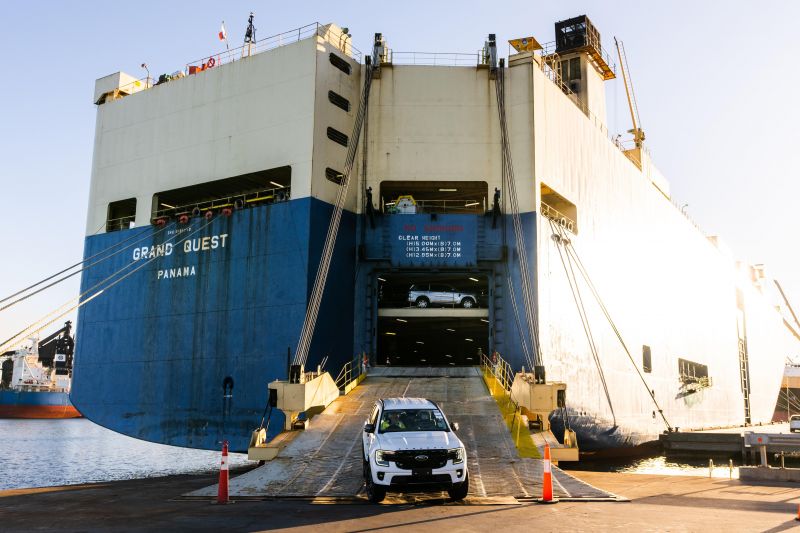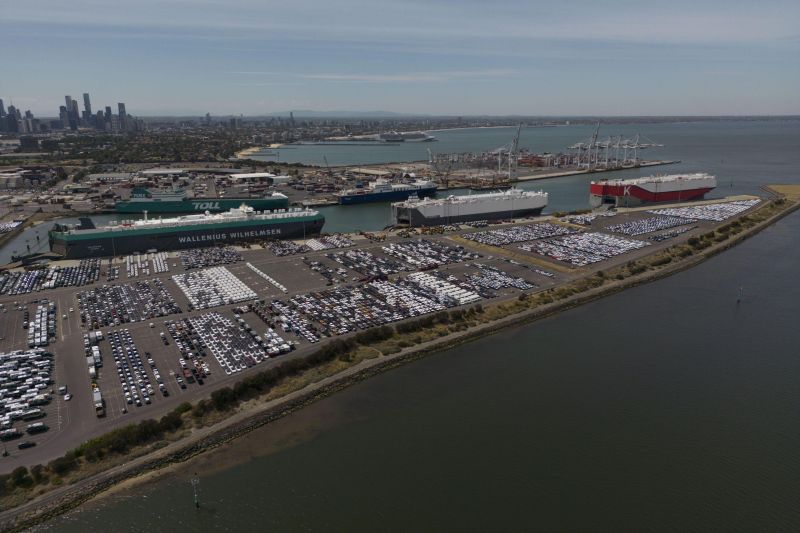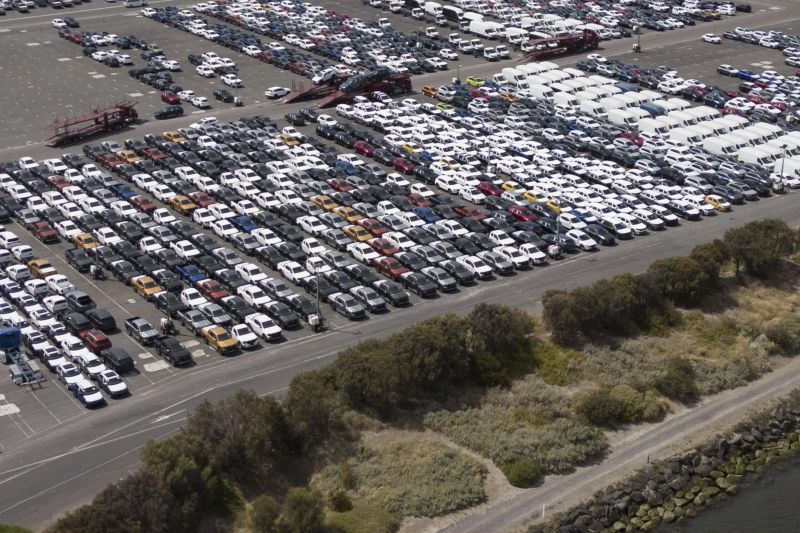New-car buyers should brace for a fresh round of shipping delays at Australian ports.
Quarantine troubles linked to stink-bug infestations, a seasonal pest which has been affecting ships arriving in Australia for more than five years, have begun again.
There are already reports of thousands of cars which have failed quarantine inspections.
The focus is on Melbourne, a key hub for arrivals by the giant roll-on, roll-off car carriers known as ROROs.
During January, the last month with official reporting, the stink bug problem was identified as the cause for a “current congestion situation” at the port.
“In the past four days, 3814 units have failed quarantine, bringing the number of units currently on hold pending treatment at MIRRAT to 5300,” said an official report in January from the Melbourne International RORO Automotive Terminal.
Delivery delays have plagued Australia’s new-car showrooms since the start of the COVID-19 pandemic, firstly as car companies were forced to cut production – with staff shortages and vastly reduced supplies of computer microchips – and then when a new type of quarantine threat was identified.
The quarantine problem was caused by contamination from soil, plant debris, seeds and live insects which caused a biosecurity hazard when vehicles were infected while waiting to be loaded onto RORO ships.
“We are currently seeing an increase in Biosecurity Risk Material (BRM) on new vehicles arriving in Australia,” a spokesperson for the Department of Agriculture said at the time.
Eventually, more than 10,000 cars were delayed for checks and cleaning and dozens of ships were delayed.
-

Ford’s own car carrier
To overcome the shipping delays, Ford Australia even chartered a dedicated vessel to bring its Ranger and Everest models from Thailand to Australia.
This time, the quarantine hazard is linked to stink bugs, a problem dating back to 2019.
“We are currently in brown marmorated stink bug season, in which target high-risk goods and target risk goods are subject to measures from 1 September 2023 to 30 April 2024,” said an update from the International Forwarders & Customs Brokers Association of Australia.
“We also have dandelion season, whereby the plants’ fine, airborne seeds are readily dispersed and adhere to exposed imported goods such as new vehicles, resulting in the vehicle being placed in quarantine awaiting inspection and approved decontamination procedures.
“Following the required cleaning process, re-inspection and approval are required before vehicles can be released.”
In Melbourne, the impact of the stink bug situation is clear.
“We have seen a significant increase in contaminated cargo arriving at the terminal,” the report from MIRRAT said.
“Cargo remaining on the terminal beyond the allocated free time also continues to tread upwards.”
The situation was predicted to worsen into February although there are no details yet.
“We anticipate yard and vessel congestion for the next 3-4 weeks, subject to quarantine failure rates. Three vessels are queued at anchorage awaiting a berth, with seven vessels due to arrive,” the report said.

